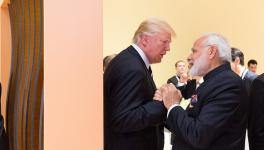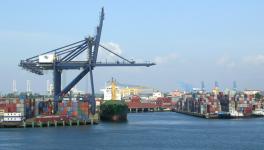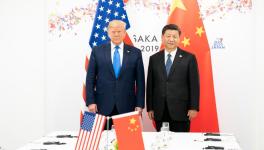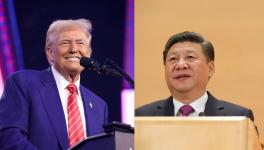‘WTO Fisheries Subsidies Talks Should Target Problems, not Small Fishers’
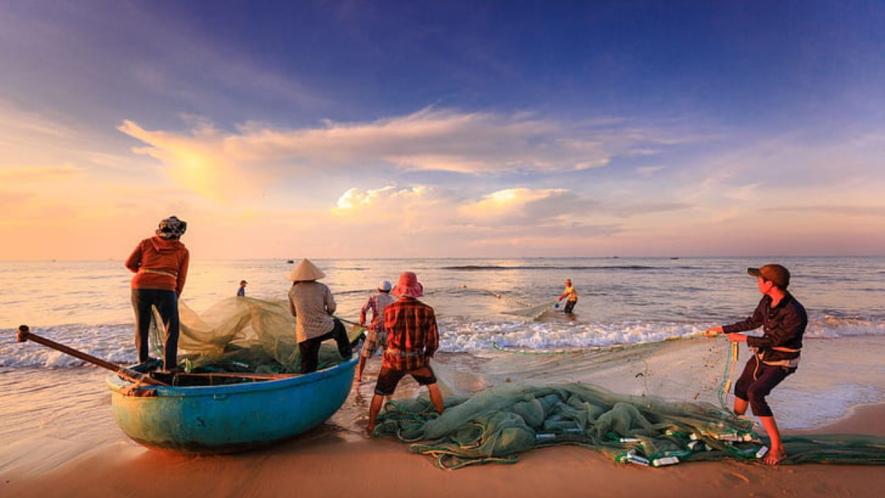
Representational Image. Image Courtesy: PickPik
New Delhi: Fisherfolk representatives at the ongoing 13th WTO Minsterial in Abu Dabhi have called upon all members of the global trade body not to “trade away” support for small-scale fishers during the talks on Tuesday.
In a press release, Olencio Simoes of the National Fishworkers Forum in India said: “In India we have more than 100 million fishers and approximately 61% are still living below poverty line. For India's small-scale, artisanal and indigenous fishers, the WTO negotiations on fisher subsidies will directly impact their livelihoods.”
Several fisherfolk unions and organisations called upon the World Trade Organisation (WTO) members said that the proposed text brought to the Ministerial “fails to target those large-scale fleets that are most responsible for the dire state of global fish stocks. With those fleets being let through the net the worry is that small-scale fishers and developing countries will bear the blame for the lack of an agreement.”
Read the full press statement below:
Fisherfolk and Civil Society Call for WTO Fisheries Subsidies talks to target the problem, not small-scale fishers
Today in Abu Dhabi at the World Trade Organization Ministerial Conference (MC13) fisherfolk representatives have called on the global trading body to not trade away supports for small-scale fishers.
Ministers are negotiating for prohibitions on subsidies that contribute to overfishing and overcapacity based on the Sustainable Development Goal 14.6 but they are being contested as not addressing the main culprits of overfishing.
Civil Society groups and fisherfolk representatives have traveled to Abu Dhabi to raise their concerns directly to Ministers.
Olencio Simoes from the National Fishworkers Forum in India stated “In India we have more then 100 million fishers and approximately 61% are still living below poverty line. For India's small-scale, artisanal and indigenous fishers, the WTO negotiations on fishers subsidies will directly impact their livelihoods. While India has championed the cause of its small-scale fishers it must secure a special and differential treatment exemption that extends beyond the current proposed limit of 12 nautical miles. Given the inherently semi-formal nature of their work and the limitation of advanced navigation equipment, small fishers operate beyond these proposed limits up 200 nautical miles.
Fikerman Saragih, from The People's Coalition for Fisheries Justice (KIARA), Indonesia said “in Indonesia there are 2.4 million fisherfolk and even more women involved in the sector. The proposed subsidy prohibitions will risk breaking Indonesian laws and regulations, which clearly state that small-scale fishers are entitled to subsidies from the Government including for fuel subsidies, fisheries insurance, life insurance, fishing risk guarantees and realizing fish prices that benefit fishers. This proposed agreement will harm fisherfolk”
Maruf Barakat Ullah, COAST Foundation, Bangladesh commented “the subsidies Bangladesh is currently giving in fisheries are not for the capacity development of the fisherfolk for marine fishing. Rather, it is given to the poor fishing families as a social safety net program to let them survive during the three months of fishing ban in a year. The fishing ban is to resume the fish stock in the sea. Thus, Bangladesh is subsidising the fish stock when the subsidy is discouraged, which is said to affect the fish resource. Bangladesh has passed the threshold of 0.8% for marine fishing, so it will not be allowed to subsidise marine fishing. This is so controversial.”
Adam Wolfenden, Pacific Network on Globalisation (PANG), added “The proposed text brought to the Ministerial fails to target those large-scale fleets that are most responsible for the dire state of global fish stocks. With those fleets being let through the net the worry is that small-scale fishers and developing countries will bear the blame for the lack of an agreement.”
Get the latest reports & analysis with people's perspective on Protests, movements & deep analytical videos, discussions of the current affairs in your Telegram app. Subscribe to NewsClick's Telegram channel & get Real-Time updates on stories, as they get published on our website.











